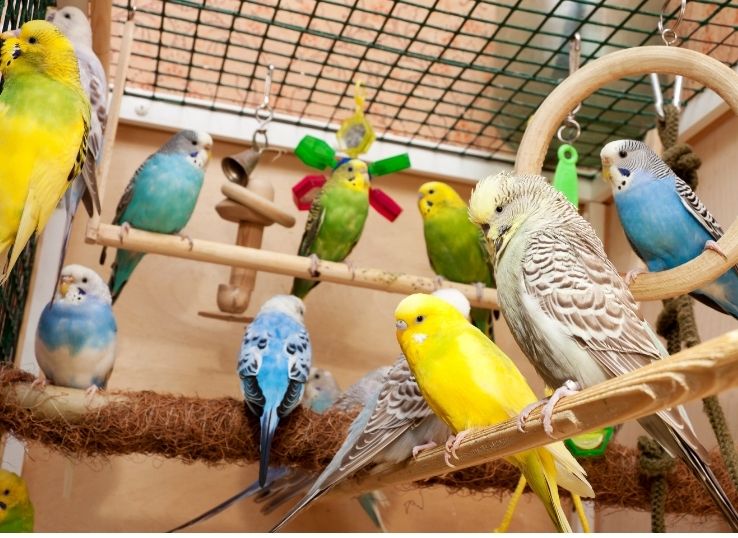Budgies Crop Infection ( Symptoms and Treatments)
Last Updated on April 15, 2022 by Ali Shahid

There has been a marked decrease in crop infections in pets such as budgies when compared to how they used to be a few years ago. Although they still occur in some instances, they tend to occur more often with babies who are fed formula-based diets by mouth or using a syringe or spoon.
Budgies Crop Infection
Infections of the crops can often cause serious problems for both digestion and appetite, especially if they are not treated in time. A “Budgies crop infection” can refer to a variety of conditions including crop stasis, vomit, sour crops, etc.
Causes of Crop Infection
The fact that the crop is usually considered to be a part of the digestive tract means that it may suffer from digestive issues that are similar to those found in other parts of the digestive system. An infection in a crop can be classified as a ‘sour crop’.
By the time the infection appears in a crop, the digestive waves have slowed or stopped, and therefore the foods contained in the crop have turned sour. The cause of budgie crop infections can be a bacterial infection or a fungus infection, specifically the Candida species.
TRICHOMONAS, which is a protozoal organism, is responsible for several budgie crop disorders that are sometimes difficult to diagnose; these disorders are often treated through clinical suspicion.
Some viral diseases can cause slow crop motility and sourness in crops, such as Bornavirus and Polyomavirus. The overheating of budgie formula or crop lacerations from incorrect feeding or other crop trauma can lead to crop burns on budgie crops.
Signs of Crop Infection
In addition to having a distended crop and a fluid-filled wall, the most common signs are regurgitation and fluid filling. Food or crop fluid may be regurgitated, or both may be regurgitated.
Even though there may be other conditions that can potentially cause regurgitation in birds, the frequency of crop infections suggests that this is a condition to be investigated before other, more serious conditions.
In the event that the crop of a budgie is distended with fluid and there are no signs of movement, they should be taken to their veterinarian immediately.
Diagnosis of Budgies Crop Infection
Crop washing, or crop aspirating, is usually performed to wash or extract the crop. To administer water to one of the budgies, a veterinarian uses a feeding tube to insert a small portion of water into the budgie’s crop.
As part of the process, some of the fluid is suctioned out and tested for infectious organisms after it is collected. Direct microscopical examinations may be carried out or cultures of the crop fluid may have to be performed.
It may be necessary to perform other tests to determine the source of the problem after the results of these tests, for example, swabbing the crop directly and performing a gram stain test (which examines the crops for any possible bacterial contamination), radiographs (x-rays), or harvest biopsy.
Furthermore, the veterinarian may also recommend performing tests that provide basic information about the health and well-being of the budgie, such as tests to detect viral diseases or blood tests to detect blood.
Treatment
A veterinarian will determine the most appropriate method of treatment for your pet after he has received the correct diagnosis. Antibiotics are usually prescribed for bacterial infections.
A course of antifungal medication is usually prescribed to treat yeast infections. There are many situations where the crop can be impacted, burnt, lacerated, or entrapped with foreign objects.
In these cases, alternate medical and surgical therapy may be needed. Depending upon the severity of the infection, your budgie may need to be hospitalized and treated if it suffers from a crop infection. Any of the crop diseases or problems mentioned previously will require veterinary assistance to be resolved.

